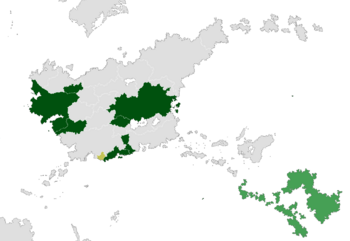Musgorocian Criminal Court: Difference between revisions
No edit summary |
No edit summary |
||
| Line 7: | Line 7: | ||
| image_symbol = | | image_symbol = | ||
| symbol_width = | | symbol_width = | ||
| image_map = | | image_map = Musgorocian court.png | ||
| image_map_size = | | image_map_size = | ||
| map_caption = | | map_caption = Parties and signatories of the Treaty of Risbon<div style="text-align:left">{{legend|#00510E|Signed and ratfied}} | ||
{{legend|#46A055|Non-signatory that has accepted the jursidiction of the MCC}} | |||
{{legend|#C4C456|Attempted to withdraw but ''de jure'' remains a party}} | |||
{{legend|#DFDFDF|Not a party}}<div> | |||
| org_type = | | org_type = | ||
| membership_type = Membership | | membership_type = Membership | ||
Revision as of 03:28, 5 June 2024
This article is incomplete because it is pending further input from participants, or it is a work-in-progress by one author. Please comment on this article's talk page to share your input, comments and questions. Note: To contribute to this article, you may need to seek help from the author(s) of this page. |
The Musgorocian Criminal Court (MCC) (French: Tribunal pénal de musgorocie, TPM) is an international tribunal headquartered in Ninfas, Agostinia. Established by the Treaty of Risbon during the Emergency War to prosecute members of the Bourgougian Synarchist government and military for the extensive war crimes and acts of genocide perpetrated by the Bourgougian Armed Forces and associated paramilitary organisations, it has since undertaken investigations into suspected criminal acts in other countries, including by various individuals during the Bourgougian Blitz, Acrary Civil War and Aspinian Civil War. Its jurisdiction encompasses the territory of member states, including acts perpetrated by non-member states on the territory of member states and vice versa. Each country appoints one member of the bench, typically drawn from a high court or similar judicial institution.
